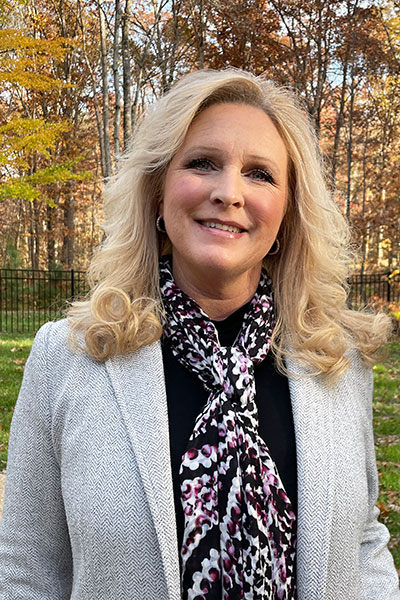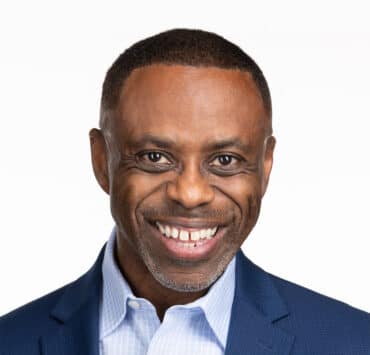Bon Secours Mercy Health (BSMH) is the fifth-largest Catholic health system in the United States and the biggest nonprofit private healthcare provider in Ireland. In the US, its three thousand providers serve patients in hospitals, clinics, labs, and imaging centers across seven states. The system generates about $10 billion in annual operating revenue.
Amy Whitaker, a veteran nurse with a decade of experience in floor work and another decade in management, is helping BSMH leverage its influence to address the increasing cost of healthcare in the United States and beyond. “We realized that because of our size, we could do something new to drive change across the industry,” Whitaker says. “The ultimate outcome is a new standard of care for patients, reduced risks, lower costs, and improved quality.”
In early 2021, BSMH laid out its plan to create a new group purchasing organization known as Advantus Health Partners (AHP), with Whitaker at the helm as corporate vice president of clinical transformation. AHP will help BSMH and others reduce budgets and increase efficiencies by uncovering opportunities for cost-saving through purchasing. The new group will also provide advanced expertise in inventory management, distribution and logistics, and clinical integration.
As AHP launches, the entity will focus on serving BSMH, but Whitaker says she’s looking forward to collaborating with health systems, institutions, physician clinics, and other partners. “Our long-term goal is to negotiate contracts that will benefit our members as we maximize supply chain savings and find new ways to help organizations control costs in a difficult environment,” she explains.

The job is a natural fit for Whitaker, who started her leadership journey as a nurse manager at Mary Washington Healthcare. The experience helped her get a fuller picture of what happens in any large health system. “When I got into management, I saw how budgets and supplies and schedules impact patient care, and I started looking at care delivery in a whole new way that goes beyond patient outcomes,” she says. Suddenly, Whitaker wanted to learn more about how business and financial decisions affect nurses, physicians, patients, and whole communities.
That desire set Whitaker on a new path. She made her goals known and became a clinical resource coordinator, then a resource utilization manager, and ultimately a director of supply chain solutions. In those roles, Whitaker set out to develop and lead value analysis and clinical transformation teams. Her teams now include clinicians who review projects and help make informed decisions regarding the supplies purchased for hospitals, labs, and other healthcare facilities.
“I act as the translator to bridge the gaps between the administrators and the care providers who actually use the supplies,” she says. “Having an experienced nurse leading the team drives better outcomes, and we keep the patient at the center of every decision we make.”
In the uncertain world of healthcare, speed, accuracy, and consistency are key. Whitaker has worked tirelessly to limit suppliers and reduce unnecessary options. “We don’t need twenty suppliers for spine products if we can get what we need from five,” she explains. Thousands of products exist, and those choosing which products to order should understand every nuance of their clinical use.
As she’s progressed in her career, Whitaker has led a number of important initiatives. She collaborated with other leaders to drive a consistent supply chain strategy across the entire organization, created short- and long-term goals, and was instrumental in evaluating existing and potential products, devices, equipment, and services.
Whitaker was already leading value analysis and contracting teams at Bon Secours when a merger created Bon Secours Mercy Health in 2018. As the organization doubled in size, she created a new value analysis program and developed the necessary processes and protocols to review new product requests, create new contract categories, and support utilization and standardization projects.
While many similar teams focus solely on decision-making, Whitaker takes it one step further by coordinating implementation from start to finish through three critical teams that report back to her. First, a clinical transformation committee develops and prioritizes new use cases before suggesting changes. Second, clinical resource program teams embedded in medical facilities provide training and information to drive changes forward. Lastly, surgical navigators manage and update physician preference cards and find new ways to reduce waste or increase standardization.
A hands-on leadership style has helped Whitaker develop a reputation for building strong teams and effecting change. She has experience in launching new endeavors, leading multimillion-dollar projects, and implementing effective processes—all while keeping patient care at the center of every decision. These are the qualities she’s drawing upon to lead AHP through its start-up phase.
Whitaker can’t remember a time when she didn’t want to become a nurse. As an RN, she worked in general nursing, in the NICU, and in pediatric units. Her most rewarding moments include being with patients in their time of most severe need, or being recognized and thanked by a patient’s loved one out in the community. Although she sometimes misses direct patient interaction, she also knows her work in supply chain and group purchasing is making a real impact.
“Most of us got into healthcare to help others and drive outcomes,” she says. “And when we can improve efficiency and lower costs, we are making sure every patient receives the best care we can possibly provide.”


